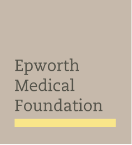Studies have clearly shown that rTMS is an effective treatment for patients with depression.
rTMS is a procedure whereby a small coil is placed onto the patients scalp and magnetic energy is administered as per psychiatrist prescribed treatment protocol.
Download our rTMS flyer (PDF, 1.MB)
rTMS in Depression
Studies have evaluated the role of rTMS in the treatment of depression since the mid-1990s. These studies have clearly shown that rTMS is more effective in patients who have not responded well to antidepressant medication treatment.
What happens when you have rTMS?
rTMS is administered 7 days per week (Monday to Sunday) at Epworth but other schedules are possible. Sessions usually take between 20 and 45 minutes per day depending on the protocol being utilised. During an rTMS session a patient is awake, and sitting in a recliner chair.
Before the initial treatment course begins, some time is spent stimulating the area of the brain that controls muscle movement in the hand. The patient will experience sensations eg. twitches in the hand. This procedure is done to establish the correct intensity required for your individual treatment.
During the treatment, a coil is placed on the scalp towards the front region of the brain. The coil is connected to a machine that generates a magnetic pulse. Throughout treatment the machine produces a clicking sound, and the sound of water cooling the coil. The patient usually wears disposable ear plugs to prevent discomfort from the sound during the course of rTMS. The patient may feel a tapping sensation under the coil. The magnetic field produced can also stimulate small nerves around the head and face producing a muscle twitch in the forehead, face or eye region.
Side effects
In general, there are few side effects that might be experienced during an rTMS procedure. A headache or neck-ache can occur, and can be relieved with simple analgesic medication. Those who do find it uncomfortable usually find they get used to the sensation over a few days and strength of the stimulation pulse can be lowered until then. Patients generally acclimatise to the sensation over the course of the treatment.
Risks
The main concern associated with rTMS is its potential to cause seizure. Very few seizures have occurred with rTMS.
The vast majority of research conducted to date suggests that rTMS is safe and without long-term side effects.
Exclusion criteria
There are several reasons why someone cannot have rTMS. These include a diagnosis of epilepsy, an active brain illness such as a recent stroke or anything that may be affected by the magnetic field. This can include metal implants in the head, surgical clips, cardiac pacemakers, implanted medication pumps or electrodes. rTMS may also be avoided if a patient has an unstable medical condition (for example heart disease) that could be exacerbated if they were to suffer a seizure.
The safety of rTMS in pregnancy has not been evaluated and is not recommended at this time. If any of these conditions are relevant to you, it is very important that you let us know prior to your assessment for treatment.
Other treatments whilst undertaking rTMS
It is important to tell your doctor and our rTMS staff about any treatments or medications you may be taking, including non-prescription medications or herbal remedies and any changes to these during your participation with rTMS. We typically try and avoid significant changes to medication, or starting new medications that affect the brain, during a course of rTMS treatment as this is likely to confuse our understanding about what might have produced any therapeutic benefits with this treatment.
Frequently asked questions
What will it feel like?
Everyone’s experience is unique but most patients describe it as a tapping sensation. It may be uncomfortable initially. However most patients acclimatise to the sensation after a few treatments.
I’ve had X days of treatment and I haven’t noticed any improvement, is that normal?
It can take about 10-15 treatments before you notice a response to TMS, however this varies from patient to patient and for some, the response may not be evident until after the completion of the course of TMS.
Can I use my phone/device or read during treatment?
We strongly recommend placing all devices out of reach during treatment. Devices brought too close to the coil during stimulation may be damaged by the strong magnetic field.
I’m thinking about starting/coming off (antidepressant) medication, is that ok?
Changes in your medications should always be discussed in consultation with your doctor.
I have to miss a treatment, will that affect my chances of getting better?
Sometimes it is unavoidable to miss an occasional treatment and this should not affect the chances of a good response. Consistent attendance, however, is important to achieve optimal response.

